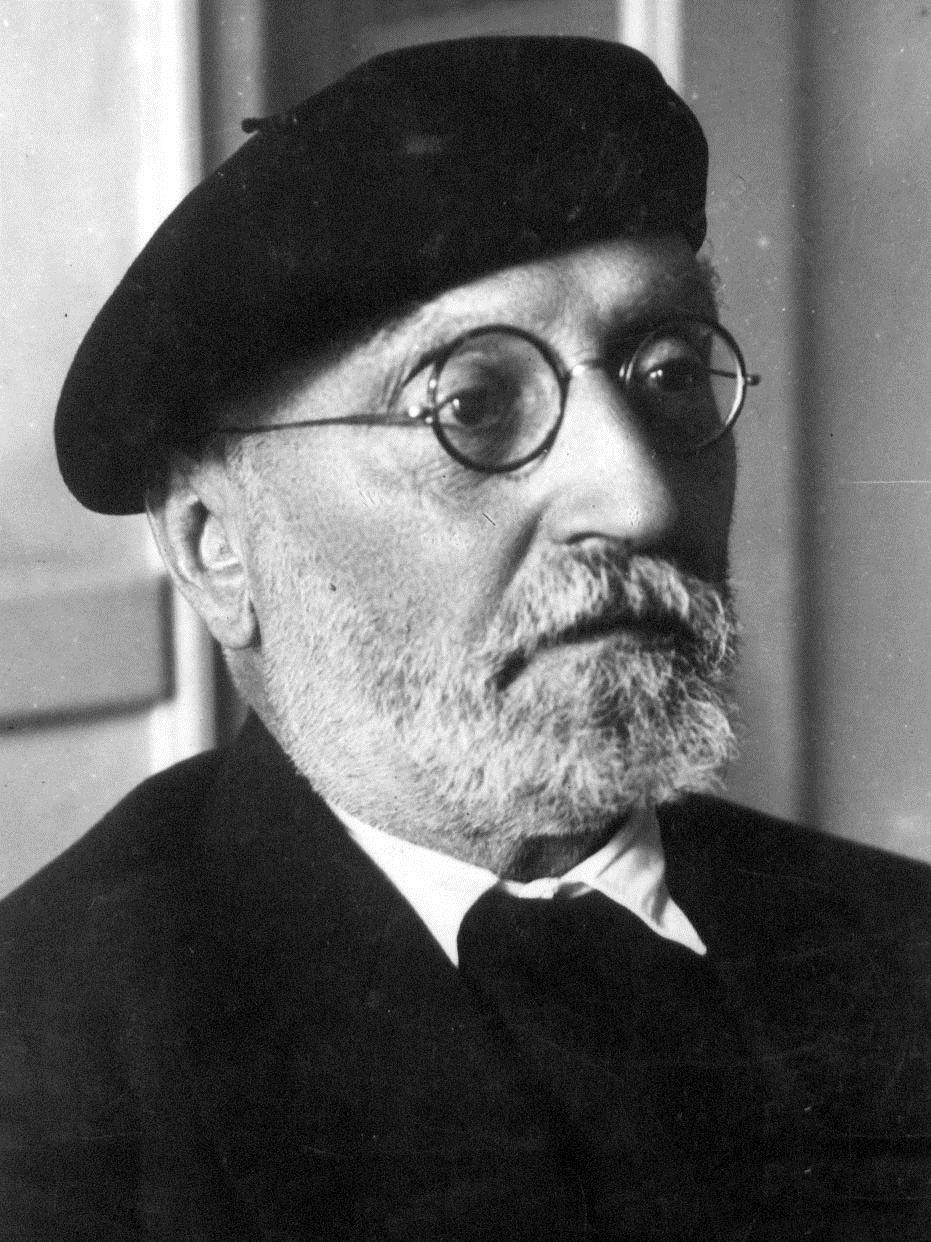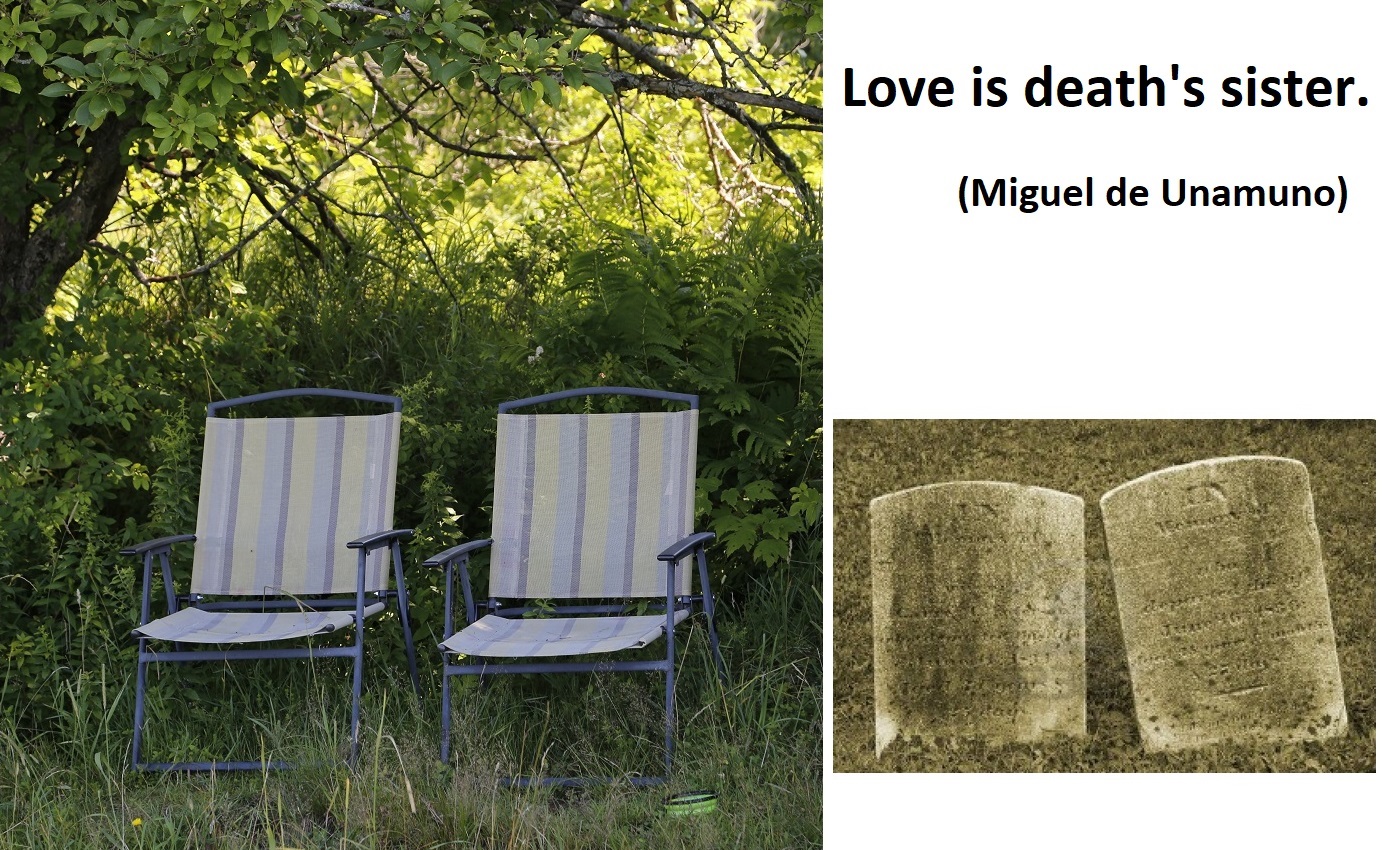LIST OF PHILOSOPHERS
Miguel de Unamuno was a Spanish philosopher, novelist and poet. After studying at the University of Madrid, he became a professor at the University of Salamanca, and then rector of the university. In 1924 Unamuno published articles criticizing the Spanish dictator Primo de Rivera, and as a result
On Love
Miguel de Unamuno (1864-1936)

Miguel de Unamuno (1864-1936) was a Spanish philosopher, novelist and poet. After studying at the University of Madrid, he became a professor at the University of Salamanca, and then rector of the university. In 1924 Unamuno published articles criticizing the Spanish dictator Primo de Rivera, and as a resulthe was dismissed from the university and escaped to France. After the fall of Rivera, in 1930, Unamuno returned to Salamanca to become rector again. In 1936 he was again banished from the university, this time for criticizing Franco. He died from heart attack while under house arrest.
The following passages are adapted from Unamuno’s The Tragic Sense of Life (1912), which revolves around the issue of death – a central issue in Unamuno’s philosophy. This book – philosophical, poetic, personal – is filled with the desire for eternal life. Human life is tragic because rationally we know that we are going to die, although we also have the need to believe in God and eternal life. The result is an inner conflict between our rational thought and our need to believe. We keep searching for God, knowing rationally that we will not find him.
In the following selection, Unamuno explains that love originates from our despair and self-pity. We feel compassion for ourselves because of our mortality, our nothingness, our misery. And this self-compassion is then expanded to compassion and love for others who are miserable like us, for all creatures, for the world, for God.
(from Chapter 7: Love, Pain, Compassion and Personality)
Love, my readers and brothers and sisters, is the most tragic thing there is. Love is the child of illusion and the parent of disillusion. Love is consolation in desolation. It is the only remedy against death, since it is death’s sister.
[…]
 To love spiritually is to feel compassion, and whoever feels most compassionate loves most. People who burn with charity towards their fellow human beings feel this way because they have understood the depths of their own misery, of their own lack of substance, their own nothingness. And then, after turning their opened eyes towards their fellow human beings, they see that these people too are equally miserable, subject to annihilation, and they feel for them compassion and love.
To love spiritually is to feel compassion, and whoever feels most compassionate loves most. People who burn with charity towards their fellow human beings feel this way because they have understood the depths of their own misery, of their own lack of substance, their own nothingness. And then, after turning their opened eyes towards their fellow human beings, they see that these people too are equally miserable, subject to annihilation, and they feel for them compassion and love.
[…]
As love grows, the passionate yearning to reach the ultimate, to reach the deepest of all things, is extended to everything visible, and you feel compassion for all. As you go within yourself, the deeper you go the more you discover your emptiness, you discover that you are not completely yourself, that you are not what you want to be, and in short that you are nothing. When you reach your own nothingness, when you cannot find a stable ground within yourself, when you cannot discover your own infinity – let alone your own eternity, you will feel full compassion for your own fate, and you will burn with a sorrowful love for yourself. It will extinguish self-love, which is only a sensual kind of self-satisfaction or self-gratification, coming from your own self’s body.
Spiritual love for yourself, the compassion you feel for yourself, may perhaps be called egotism, but nothing is more contrary to ordinary egoism. Because from this love or compassion for yourself, from this intense despair, from the knowledge that you will not exist after you die just as you did not exist before your birth, you go on to feel compassion for – that is, love to – all your fellow human beings in this world of appearance, those miserable shadows who walk about, going from nothingness to nothingness, mere sparks of consciousness shining for a moment in the infinite and eternal darkness. And from feeling compassion for other people, for those who are similar to you, for those around you, you go on to feel compassion for everyone alive, and perhaps even compassion for what does not live but only exists.
[…]
If you look at the universe as closely and inwardly as you can, in other words within yourself, if you sense – and not just think – everything in your consciousness, where all things have left their painful imprint, then you will understand the depth of tedium, not only the tedium of life, but of something more: the tedium of existence, the bottomless well of the vanity of vanities. And so you will come to feel compassion for all things: you will feel universal love.
In order to love everything, in order to feel compassion for all things – human and extra-human, living and not living – you must feel everything within yourself, you must personalize everything. Because love personalizes everything it loves, everything it pities. […] Because every consciousness is awareness of death and suffering.
Philosophers
-
- Unamuno
When you subscribe to the blog, we will send you an e-mail when there are new updates on the site so you wouldn't miss them.
